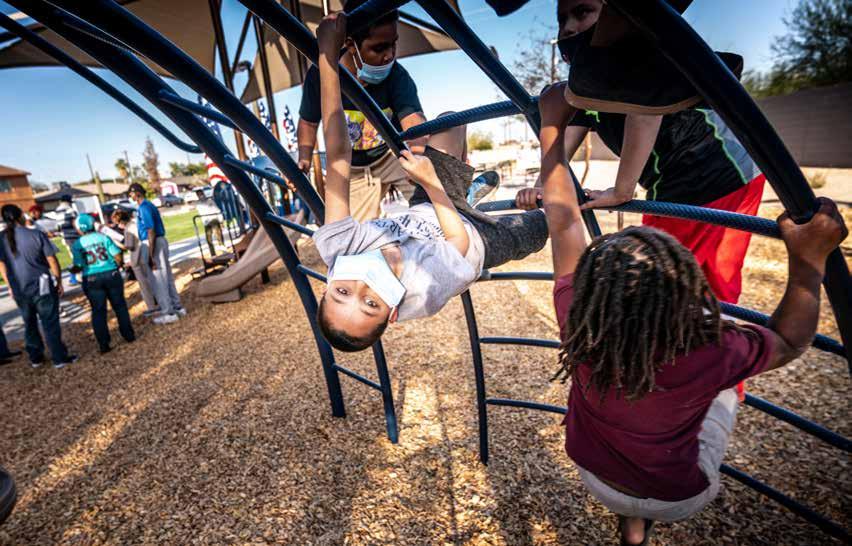
2 minute read
INTRODUCTION
PHOTO COURTESY OF ADAM WALTZ, CITY OF PHOENIX PARKS AND RECREATION
Equitable access to parks is a high priority for Phoenix Parks, and providing high-quality playground equipment is crucial to mental and physical health for adults and children.
Advertisement
Parks and recreation improves the lives of millions of people each and every day. Public parks, trails, and indoor and outdoor recreation facilities promote better physical and mental health, serve as places for family and friends to meet, and are often oases where people can reconnect with nature. More than 165,000 full-time park and recreation professionals — in collaboration with hundreds of thousands of part-time, seasonal and volunteer workers — deliver innovative programming that supports childhood growth, celebrates our communities’ diversity and addresses the many challenges that we face. Even during the coronavirus (COVID-19) pandemic or in the midst of local natural disasters, 10,000 park and recreation agencies have been on the front lines of cities’, towns’ and counties’ emergency responses to those challenges, offering nutritious meals, delivering important supplies and providing facilities for testing and vaccinations.
With vast, diverse offerings, parks and recreation also provides everyone with unique, personal experiences. For the young, their local park and recreation agency offers after-school and summer camp programming, introduces them to sports, and presents opportunities where youth can learn to embrace the outdoors and how to steward their natural surroundings. For older adults, parks and recreation provides ways to stay physically and mentally healthy and meet their neighbors. For everyone, parks and recreation offers ways to give back to their communities through service.
Since 2016, the Research team of the National Recreation and Park Association (NRPA) has conducted an annual survey to better understand how people connect with parks and recreation across the United States. The results from these surveys form the basis of NRPA’s annual Engagement With Parks Report. The report series provides park and recreation professionals and advocates, policymakers and other key stakeholders with insights into how local parks and recreation facilities impact the lives of every person in our nation.
On behalf of NRPA, Wakefield Research surveyed 1,000 U.S. adults ages 18 and older between May 18 and May 30, 2022. The firm used quotas to ensure the responses reflected a reliable representation of the U.S. adult population. The margin of error for data represented in this report is +/-3.1 percent at the 95 percent confidence level.



